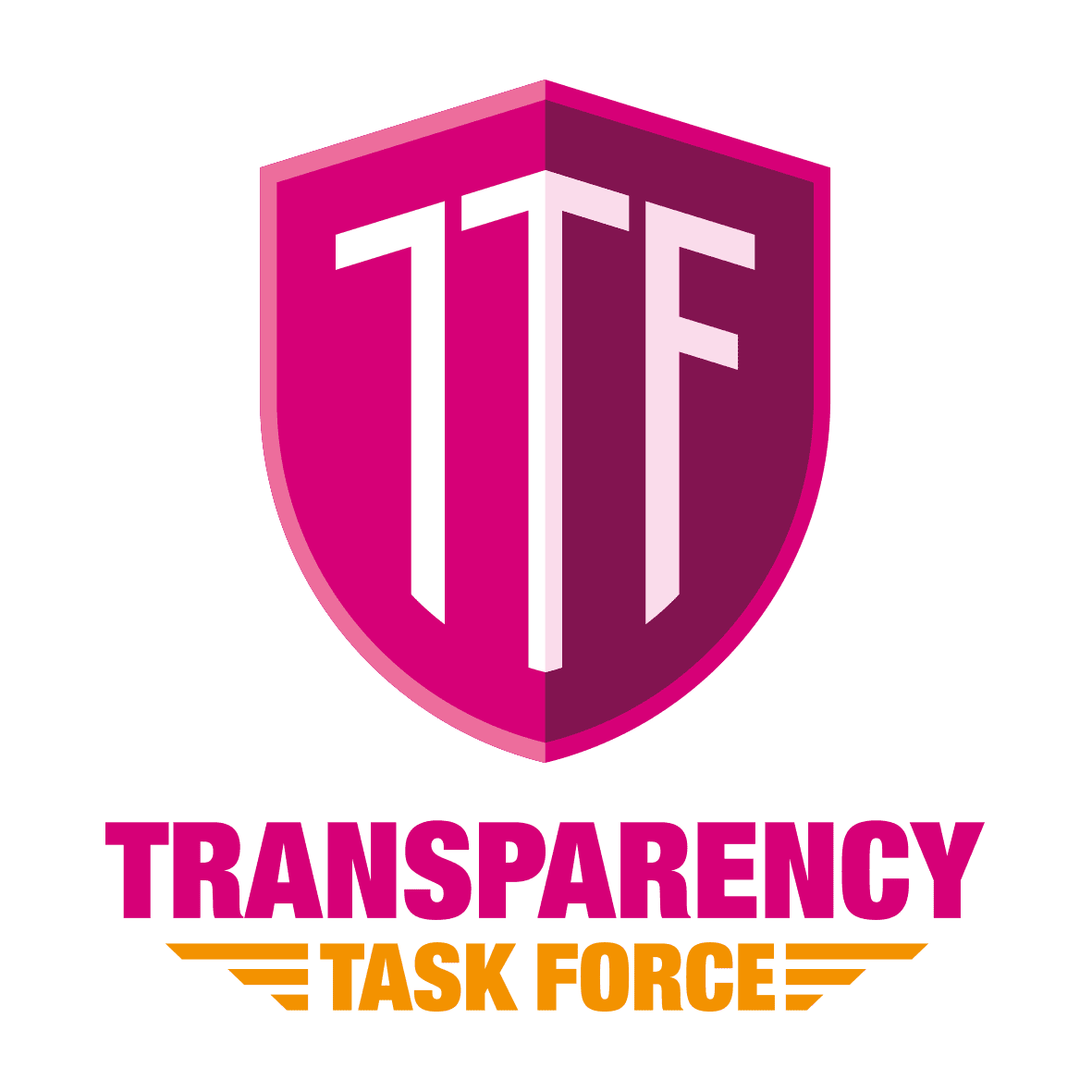When
Thursday, October 26th, from 6pm - 7:30pm BSTWhere
Online via Zoom.Format
There'll be a great line-up of speakers plus ample scope for discussion and debate.Why You Should Attend...
TTF BELIEVES THE FCA IS MORALLY BANKRUPT AND NEEDS TO BE DEFEATED
At this very special TTF event, Simon Bishop of the law firm Hausfeld is going to be providing a strategically important update to one of the most significant developments in recent years that the TTF has had the opportunity to be involved with.
We are expecting that by the time this event happens the FCA will have provided its defence against the allegations being made of it, which are essentially that it has made a decision that is both irrational and unlawful.
We cannot stress how important this judicial review is and we want as many of our community as possible to attend this event to get a full update on current proceedings and what’s going to be happening next; please do all you can to support the event by attending.
If you’re unaware of this matter and want to get up to speed, read on:
Background
The mis-selling of interest rate hedging products (IRHPs) by banks to business customers is one of the UK’s largest ever financial scandals. Livelihoods were lost, businesses built up over many years were destroyed and lives were ruined.
The All Party Parliamentary Group on Fair Business Banking (APPG), a cross-party group of MPs and Peers – represented by Hausfeld – has brought a judicial review against the Financial Conduct Authority (FCA), requiring the FCA to give bank customers access to IRHP compensation of c. £1 billion.
The IRHP redress scheme and the Swift Review
In 2013, the FCA’s predecessor the Financial Services Authority (FSA) entered into agreements with nine banks, which resulted in over £2.2 billion in compensation being paid to customers who had been mis-sold IRHPs, over the period from 2001-2011 (the Scheme).
However, over 10,000 sales of IRHPs to approximately 5,000 customers were excluded from the Scheme by the FSA, on the basis of a “sophistication” test, which sought to categorise and exclude victims of IRHP mis-selling based on inflexible and arbitrary criteria. This exclusion affected around one third of the sales, and thus may have prevented customers accessing over £1 billion of compensation.
Complaints to the FCA, including by the APPG, led to the FCA commissioning John Swift KC to conduct an independent review of the Scheme. He and his team worked for over two years, at a cost in excess of £7 million. His comprehensive lessons learned review (the Review) was published on 14 December 2021.
The Review concluded – in clear and authoritative terms – that the FSA had been wrong to exclude these sales from the Scheme and had acted unlawfully in a number of respects when doing so.
The Response and the judicial review
The FCA issued a response to the Review, published on the same day (the Response). It stated that it “does not consider that the FSA was wrong to limit the scope of the redress scheme to less sophisticated customers and has concluded that it would not be appropriate or proportionate to take further action. Accordingly, the FCA will not seek to use its powers to require any further redress to be paid to IRHP customers.”
The APPG considers that the Response fails to address the conclusions reached in the Review in several material respects, and that its decision not to seek to use its powers to require any further redress to be paid to the excluded IRHP customers is flawed and unlawful.
The Judicial Review
The APPG believes that it is unacceptable that so many bank customers who were the victims of mis-selling have been denied compensation. This denial affects both ‘sophisticated’ customers excluded from the Scheme and also customers of banks other than the nine within the Scheme.
On 8 February 2022, Hausfeld on behalf of the APPG sent a letter before claim to the FCA pursuant to the Pre-Action Protocol for Judicial Review.
APPG on Fair Business Banking granted permission in judicial review of FCA’s decision regarding IRHP redress
At a full day hearing on 29 June 2023, the All-Party Parliamentary Group on Fair Business Banking (APPG), represented by Hausfeld, won permission to proceed with its judicial review of the FCA’s decision not to act on the findings of independent reviewer John Swift KC in respect of the exclusion of customers from the IRHP redress scheme.
Background
The mis-selling of interest rate hedging products (IRHPs) by banks is one of the UK’s largest ever financial scandals. A redress scheme announced in 2012 paid out over £2bn in compensation. However, around one third of complaints relating to over 10,000 sales of IRHPs were excluded by the FSA (the FCA’s predecessor), based on a “sophistication” test that used inflexible and arbitrary criteria.
The FCA commissioned an independent review of the IRHP redress scheme, led by John Swift KC, in 2019. The review was extensive: it took two and a half years to complete, at a cost of £8 million. In 2021, the review concluded that the exclusion of those customers was wrong. The review stated – in clear and authoritative terms – that the FSA had been wrong to exclude these sales from the Scheme “without proper justification, consultation, analysis, or safeguards”.
The FCA’s response was published on the same day as the review’s findings. The FCA decided that it would not take any further action. The FCA stated that it “does not consider that the FSA was wrong to limit the scope of the redress scheme to less sophisticated customers and has concluded that it would not be appropriate or proportionate to take further action. Accordingly, the FCA will not seek to use its powers to require any further redress to be paid to IRHP customers.”
The APPG considers that the FCA’s decision is flawed and unlawful. Hausfeld acts for the APPG in its judicial review claim, which seeks to review the FCA’s decision on the grounds that: (1) that the FCA’s decision is irrational and therefore unlawful; and (2) the FCA failed to consult with the excluded customers who were affected before making its decision.
Judgement of 29 June 2023
After a full day hearing on 29 June 2023, Mr Justice Fordham found that both grounds were arguable and should be determined at a full hearing. The Judge held that “the substantive ground for judicial review is properly arguable with a realistic prospect of success” because it is arguable that the FCA’s decision not to accept the finding of the Independent Reviewer on the wrongfulness of the eligibility criterion “cannot withstand reasonableness scrutiny, including as to legally adequate reasoning, grappling with the Independent Reviewer’s analysis in a decision which “adds up”, free of error of reasoning robbing the decision of logic”.
The Judge was also satisfied that the procedural ground for judicial review was properly arguable with a realistic prospect of success because, in relation to the decision-making process: “The Authority plainly took a deliberate procedural decision to secure a temporal alignment between the publication of the Report, the publication of the Response, and the publication of the decision on whether to take any further action. The Authority did that, moreover, specifically thinking about the prospect that there would be voices calling for it to take action, and specifically for ‘presentational’ and other reasons. The implications of that procedural design of the sequence of events eliminated the prospect of voices – informed, empowered and able to reference the detailed reasoning of the published Report – having the opportunity to persuade the decision-maker prior to the outcome, and before minds were made up. Viewed in that way and in that setting, it is in my judgment arguable that standards of fairness (and reasonable sufficiency of enquiry) have not been met.”
The Judge further noted in the costs judgment referred to below that the case raised “extremely important issues of law”, such as “Has this regulator really contracted-out, or engendered a legitimate expectation, as to its ability to take any further regulatory action? Has it done this, in relation to the very cases which were being excluded as ineligible from a redress scheme? Could it even do that, and be understood to do that, given its statutory functions?”.
The High Court also found that the APPG has standing to bring the claim, because it “clearly has a legitimate, and indeed a targeted, interest in the specific issues. They are inextricably linked with the foundational purpose for which the [APPG] came into existence”.
Cost capping and fundraising
The APPG’s claim relies entirely on fundraising through CrowdJustice. Hausfeld and the counsel team instructed for the APPG are working on significantly reduced rates of no more than 25% of their standard rates (absent a greater recovery of costs from the defendant). The fundraising is used to meet these costs and other expenses incurred in the proceedings, such as court fees.
In a separate costs judgement discussing costs capping in the context of a CrowdJustice fundraise the High Court ordered that if either party to the proceedings is unsuccessful and ordered to pay costs, the costs will be capped at 40%. Therefore, 40% of the funds raised will be held in reserve to cover any costs that the APPG must pay if the claim does not succeed. As a result, the APPG is seeking to raise another £100,000 to cover the costs of the next phase of proceedings.
TTF believes this is a profoundly important case; a very real opportunity to show that FCA has behaved wrongly (as stated by John Swift KC) and also unlawfully. We want to support this case as best as we can, seeing it as of massive strategic importance, not just to the IRHP victims but also to the wider cause of showing the FCA to be not fit for purpose – its decision to not do what it should have done to protect the interest of victims of grotesque bank mis-selling leads us with no choice other than to believe that
THE FCA IS MORALLY BANKRUPT AND NEEDS TO BE DEFEATED
Here's the programme so far...




